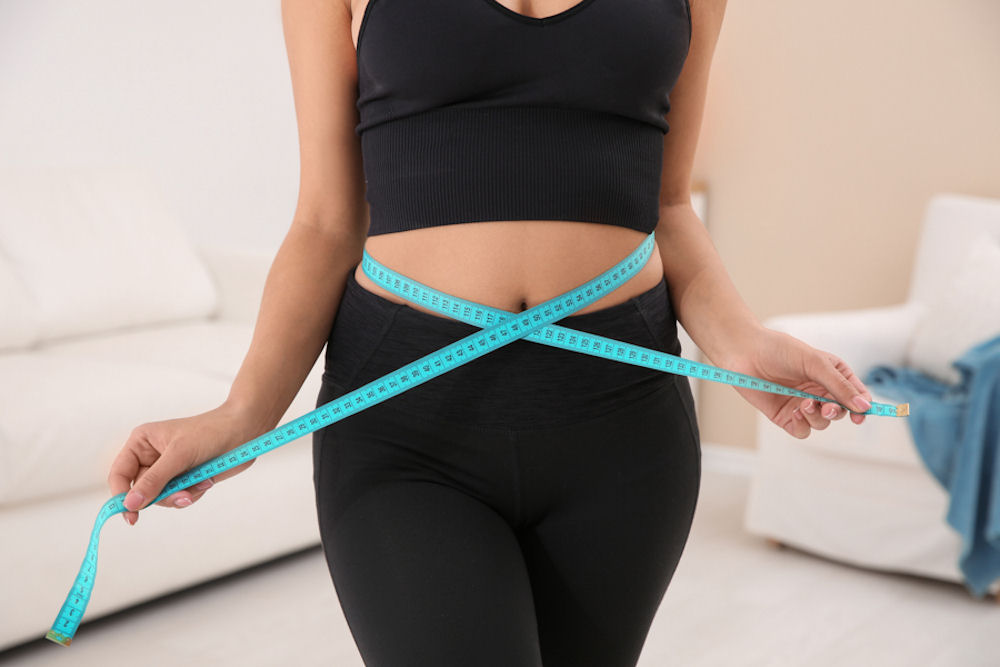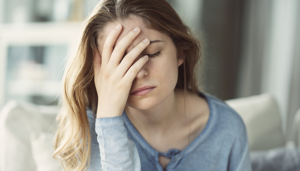Have you ever felt that feeling after an evening out, where it feels like your belly has a mind of its own, deciding to puff up like a balloon? Ah, the feared feeling of bloating. Whether it stems from indulging in a substantial dinner, spending time with friends, or simply enjoying some tasty snacks, we’ve all found ourselves there—waking up the next day feeling like we’ve swallowed a beach ball. Now, let’s talk about another potential offender: Does alcohol have an impact on our stomach and contribute to bloating as well?
In this read, we’re delving into the causes of that uncomfortable sensation known as alcohol bloat, and we’ll be sharing some tips to help you find relief.
What is Alcohol Bloating?
 Alcohol bloating refers to the uncomfortable and distended feeling in the stomach that some individuals experience after consuming alcoholic beverages. This phenomenon is characterized by a sensation of fullness, tightness, or swelling in the abdominal area. The bloating associated with alcohol consumption can result from various factors, including the impact of alcohol on the digestive system.
Alcohol bloating refers to the uncomfortable and distended feeling in the stomach that some individuals experience after consuming alcoholic beverages. This phenomenon is characterized by a sensation of fullness, tightness, or swelling in the abdominal area. The bloating associated with alcohol consumption can result from various factors, including the impact of alcohol on the digestive system.
Individual responses to alcohol bloating can vary, influenced by factors such as the type and quantity of alcohol consumed, overall health, and personal tolerance levels. Understanding the causes of alcohol bloating can help adopt strategies to alleviate discomfort and promote a more enjoyable drinking experience.
Why Does Alcohol Cause Stomach Bloating?
Alcohol consumption can often lead to bloating and discomfort in the abdominal region due to several reasons, including inflammation, carbonation, swallowing air, and water retention. Chances are, you’re likely to come across more than one of these factors contributing to the bloating feeling after drinking.
When you drink alcohol, it can lead to irritation in the lining of your gastrointestinal tract, the system responsible for processing ingested food and beverages. This irritation prompts inflammation in both the stomach lining and the digestive system, serving as a physiological alert that something isn’t quite right.
Because of this swelling, you might feel bloated, like your stomach is too full and uncomfortable. Along with bloating, you could also have more gas and just feel uneasy. So, if you’re ever wondering why you’re bloated after a few drinks, remember that it might be because of the irritation and swelling caused by alcohol.
Next up is the fizzy factor in some alcoholic drinks, like beer and sparkling wine. This fizz comes from carbonation, those tiny bubbles of carbon dioxide gas that make your drink bubbly. Now, when you enjoy these fizzy drinks, those bubbles can hang out in your stomach, making it feel bloated. It’s a bit like that full feeling you get after sipping on a soda with lots of fizz—just add alcohol to the mix.
So, if you’re reaching for a bubbly beer or sparkling wine, keep in mind that it’s not just the alcohol; those lively bubbles might be part of the reason behind that post-drink bloat. Understanding how carbonation interacts with your stomach provides a more detailed understanding of why alcohol can lead to bloating.
Apart from inflammation and carbonation, another factor that can contribute to bloating after drinking alcohol is swallowing air. It might sound surprising, but when you consume alcoholic beverages, especially if you’re sipping them quickly or using straws, you tend to gulp down more air than usual.
The swallowed air can accumulate in your stomach, leading to increased pressure and a bloated sensation. It’s like blowing up a balloon—the more air you introduce, the more it expands. In this case, the excess air can contribute to post-drink bloating.
Another significant factor contributing to bloating after consuming alcohol is dehydration. Alcohol is known to have a dehydrating effect on the body. When you drink, alcohol interferes with the normal functioning of a hormone called vasopressin, which helps regulate the balance of fluids in your body.
As a result, your body ends up losing more fluids through increased urine production. The combination of the diuretic effect of alcohol and the loss of fluids can lead to dehydration. When your body is dehydrated, it tends to retain water, which can manifest as bloating and an overall feeling of puffiness.
In essence, the more you drink, the more likely you are to become dehydrated, and this dehydration can contribute to that uncomfortable bloated sensation. So, if you’ve noticed that your stomach feels bloated after a night of drinking, it’s essential to consider the role of dehydration in the overall equation. Staying hydrated by drinking water alongside your alcoholic beverages can help mitigate this effect and possibly reduce the extent of post-drink bloating.
Which Alcoholic Beverages Are More Likely to Cause Bloating?
Certain types of alcoholic beverages are more likely to cause bloating than others. Understanding the characteristics of these drinks can help you make choices that may reduce the likelihood of experiencing post-drink bloating.
Carbonated beverages like soda, sparkling water, or fizzy drinks contain carbon dioxide gas. When ingested, this gas enters the digestive system and can lead to bloating and increased discomfort, especially if consumed in large amounts or gulped quickly.
Beer is fermented with yeast, and during the fermentation process, carbon dioxide is produced. This results in the characteristic bubbles and fizziness found in beer. Similar to carbonated drinks, the carbon dioxide released when consuming beer can contribute to bloating.
Some fruit juices, such as apple or pear juice, can cause bloating because they contain high levels of fructose, which is a naturally occurring sugar found in fruits. Fructose can be difficult for some people to digest, leading to fermentation in the gut, gas production, and subsequent bloating.
Milkshakes, milk-based smoothies, and certain types of milk, particularly those high in lactose, can cause bloating for individuals who are lactose intolerant. In these cases, the body lacks the enzyme lactase necessary to break down lactose, causing fermentation by gut bacteria, gas production, and subsequent bloating.
Some diet sodas, flavored waters, or zero-calorie drinks contain artificial sweeteners, such as aspartame or sucralose. These sweeteners are not fully absorbed in the small intestine and can pass into the colon, where they may ferment, resulting in bloating for some individuals.
How Long Does Alcohol Bloating Last?
 The duration of bloating from alcohol can vary from person to person and depends on several factors, including the amount of alcohol consumed, individual tolerance, and overall health. In general, alcohol can cause bloating by promoting water retention and affecting digestion.
The duration of bloating from alcohol can vary from person to person and depends on several factors, including the amount of alcohol consumed, individual tolerance, and overall health. In general, alcohol can cause bloating by promoting water retention and affecting digestion.
Bloating may be more noticeable shortly after drinking and can persist for a few hours to a day. If the symptoms persist or worsen, it’s advisable to consult with a healthcare professional to rule out any underlying issues.
One of the prevalent conditions influenced by alcohol consumption is known as irritable bowel syndrome, also known as IBS.
IBS is chronic, with fluctuating symptom severity over time, but it doesn’t necessarily worsen or lead to more severe conditions. It is a functional gastrointestinal disorder, which means that it affects how the digestive system works rather than causing structural damage.
IBS symptoms are disruptive, but the condition doesn’t raise the risk of serious gastrointestinal diseases. However, it can significantly impact a person’s quality of life. Management of IBS often involves dietary changes, stress management, and, in some cases, medications to alleviate specific symptoms.
How do I Prevent Alcohol Bloating?
While some individuals may be more prone to this condition, there are a few strategies that can help prevent or minimize alcohol bloating:
Consuming alcohol in moderation can help prevent excessive bloating. Follow guidelines: one drink daily for women, two for men, for moderate alcohol consumption and reduced health risks.
Avoid binge drinking or consuming alcoholic beverages too quickly. Give your body time to process the alcohol and prevent excessive bloating.
Certain alcoholic beverages, such as carbonated drinks, beer, and fizzy cocktails, are more likely to cause bloating. Opt for options with lower carbonation levels or switch to non-carbonated drinks like wine or spirits.
Carbonated mixers, such as tonic water or soda, can contribute to bloating. Opt for non-carbonated mixers like fruit juices or water instead.
Drinking water along with alcohol can help prevent dehydration, reduce bloating, and aid digestion. Ensure you drink enough water before, during, and after consuming alcohol.
Consuming salty snacks while drinking alcohol can lead to water retention and bloating. Opt for healthier snack options that are low in sodium.
Having a meal that includes protein, fiber, and healthy fats before consuming alcohol can help slow down the absorption of alcohol, lessen bloating effects, and promote a more controlled release of alcohol into the bloodstream.
Probiotics can help regulate gut health and enhance digestion, potentially reducing alcohol bloating. Consult with a healthcare professional before starting any new supplements.
For sensitive digestion, avoid carbonated drinks like soda and sparkling water to prevent bloating and discomfort. Opt for still beverages.
If alcohol consistently causes bloating or discomfort, it might be beneficial to reduce or eliminate alcohol consumption altogether. Prioritizing your overall well-being and health is essential.
Get Help with Your Alcohol Addiction at Magnolia City Detox
If you or someone you care about is dealing with alcohol addiction, there’s a caring team ready to support you at Magnolia City Detox. We understand the challenges you’re facing, and we’re here to help you on the path to recovery. Our compassionate professionals create personalized treatment plans designed around your individual needs, providing a supportive and understanding environment. Reach out today, and together, we can take that crucial first step towards a brighter and more positive future.

















